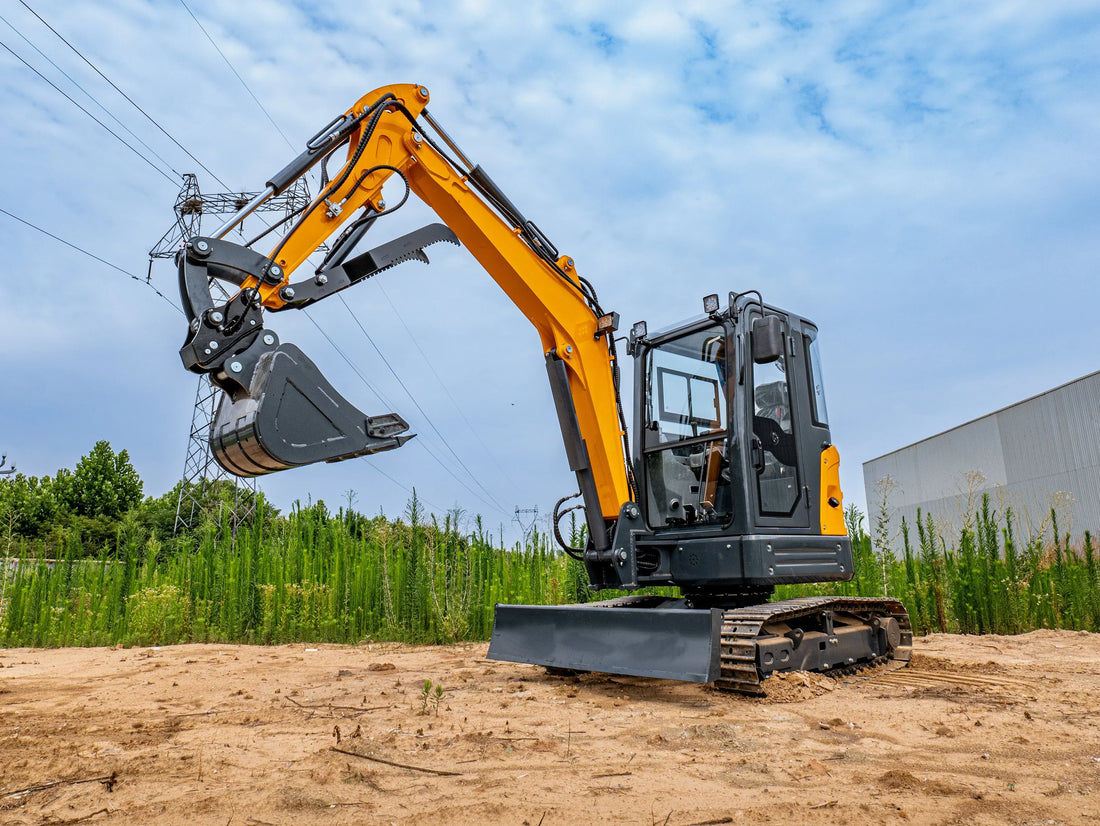
How to Choose the Right Mini Excavator
Share
At URBEXIA CONSTRUCTION, we know that selecting the right mini excavator can make a huge difference in the efficiency, safety, and cost-effectiveness of your project. Whether for earthmoving, trenching, demolition, or landscaping, the key factors are machine size, power, and intended use.
What Is a Mini Excavator?
A mini excavator, also known as a compact excavator or mechanical shovel, is a hydraulic-powered construction machine used for digging, earthmoving, demolition, and material handling. Its versatility makes it suitable for both large construction projects and small-scale urban jobs.
Step 1: Define the Intended Use
Before choosing a mini excavator, clearly define your project requirements:
- Foundation work and trench digging.
- Land clearing and grading.
- Tunnel or confined space work with zero-tail-swing models.
- Urban projects with noise and emission restrictions.
The project type will determine the excavator’s size, weight, engine power, and mobility system (wheels or tracks).
Main Types of Mini Excavators
- Tracked Mini Excavators: Ideal for soft terrain, offering stability and strong digging power.
- Wheeled Mini Excavators: Faster, more agile, and perfect for paved surfaces.
- Electric Mini Excavators: Quiet, eco-friendly, and suited for indoor or emission-sensitive areas.
Choosing the Right Size
- Micro Excavators (under 1 ton): Ideal for very tight spaces and small-scale landscaping.
- 1–2 Ton Mini Excavators: Perfect for residential projects, pool installation, and light demolition.
- Midi Excavators (6–10 tons): Compact yet powerful for medium-scale construction.
Power Considerations
Mini excavators generally use diesel engines for maximum torque and efficiency. Power output, measured in kilowatts (kW), directly impacts arm strength and digging depth.
Tracks vs. Wheels
- Tracks: Best for soft, uneven, or muddy terrain. Slower speed but greater stability.
- Wheels: Higher travel speed, ideal for urban areas and hard surfaces.
Popular Attachments
Enhance your mini excavator’s versatility with attachments such as:
- Standard digging bucket.
- Cleaning bucket for grading and clearing.
- Hydraulic breaker for rock and concrete demolition.
- Grapple bucket for material handling.
- Hydraulic auger for drilling.
- Sorting grapple for debris separation.
- Ripper tooth for tough ground.
Rental vs. Purchase
Buying a mini excavator is a significant investment, so many contractors and homeowners opt for rental. Costs vary by size and power:
- Mini excavator rental: starting under $100/day.
- Larger tracked excavators: several hundred per day.
URBEXIA CONSTRUCTION Recommendation
For most residential and light commercial projects, a 1–2 ton mini excavator with interchangeable attachments offers the best balance of power, size, and cost. For urban or indoor work, consider our electric mini excavator models to reduce noise and emissions.
Conclusion
Choosing the right mini excavator starts with understanding your project’s needs, terrain type, and required attachments. At URBEXIA CONSTRUCTION, we supply reliable, high-performance mini excavators for every job, ensuring efficiency, safety, and long-term value.
URBEXIA CONSTRUCTION mini excavator, how to choose mini excavator, compact excavator guide, mini excavator rental, buy mini excavator, 1 ton mini excavator, 2 ton mini excavator, micro excavator rental, midi excavator, tracked mini excavator, wheeled mini excavator, electric mini excavator, mini excavator attachments, hydraulic breaker for mini excavator, grapple bucket mini excavator, auger attachment mini excavator, ripper tooth excavator, mini excavator for foundation work, mini excavator for trenching, mini excavator for landscaping, zero-tail-swing excavator, mini excavator engine power, diesel mini excavator, mini excavator for urban projects, mini excavator price, mini excavator cost per day, URBEXIA CONSTRUCTION construction equipment, mini excavator buying guide, best mini excavator for small jobs
